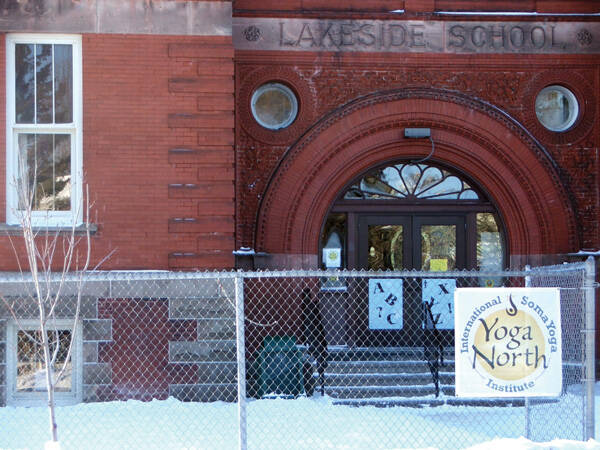News & Articles
Browse all content by date.


Churches in the United States enjoy substantial benefits that many other groups do not. Churches are exempt from paying income tax; in most states, including Minnesota, purchases made to further the church’s mission are exempt from sales tax; and property owned by the church is exempt from property tax. In addition, because churches are exempt organizations under section 501(c)(3) of the Internal Revenue Service tax code, people who donate money to a church are able to write off the donation on their taxes.
The hands-off governmental approach toward churches is rooted in the First Amendment of the U.S. Constitution: “Congress shall make no law respecting an establishment of religion, or prohibiting the free exercise thereof.” The IRS describes its policy toward churches as “constitutionally mandated benevolent neutrality.”
All of the benefits that churches enjoy are contingent on the church hewing to its religious mission. When it departs from that mission, the government becomes more interested. One way that churches can depart from their mission is by engaging in revenue-producing activities that have no religious or spiritual connection to the church’s mission (the purpose of “providing income to the church,” in and of itself, does not qualify an activity as mission-related).
In Minnesota, churches that engage in unrelated business activities may jeopardize their property tax exemption. The Minnesota Property Tax Administrator’s Manual states: “The Department of Revenue has consistently advised that to be exempted, the property must be used by the church for church purposes….Any portion of the property which is used for revenue-producing activities...shall be assessed [property tax] as...commercial property.”
Likewise, if the church leases property to a third party which engages in activity unrelated to the church’s mission, that may also jeopardize their exemption. “Generally, the property is taxable...if the property is used by a private entity for profit, or...if the property is held under a lease for a term of at least one year...on a for-profit or non-profit basis,” states the Manual.
In Duluth, a number of businesses, both nonprofit and for-profit, operate in churches or on church property. St. Michael’s Catholic School in Lakeside leases space to a yoga studio and a taekwondo studio. Pilgrim Congregational leases its kitchen to a commercial jam-making company. At least 9 Duluth churches house secular day cares (that is, day cares with no stated religious or spiritual mission). A Jazzercise franchisee operates out of the Duluth Church of the Good Shepherd, and a number of other types of exercise instructors conduct classes in various other churches. There may well be more; these are businesses that I was able to find without much effort.
Why does it matter? A few reasons. Commercial landlords pay property tax on their properties, which is an expense they pass on to their tenants. If churches lease space to businesses while enjoying a property tax exemption, they are in a position to offer cheaper leases than the rest of the market, and so unfairly compete against the commercial rental market. Cheaper rents also allow the businesses themselves to unfairly compete against similar businesses that are paying market-rate rents. Finally, when businesses locate in tax-exempt property, the county loses out on property tax that it would otherwise collect; this places a greater burden on the rest of the county’s taxpayers.
Of the churches I identified, the county’s online tax parcel finder reports that only St. Michael’s School paid property tax in 2016—$3,126. Most of that amount seems to have been assessed against an on-site cell phone tower—not against commercial space rented to third-party businesses. (Prior to 2016, St. Michael’s School paid $256 in property taxes.) According to Yoga North’s web site, they have been operating in St. Michael’s since 1995; North Shore Taekwondo has been there since 2015.
When I called St. Louis County Assessor Dave Sipila, he told me that the property taxes I was searching for might not necessarily show up online. Rather, he said, when the county looked at commercial businesses operating in churches, they first tried to determine whether or not the business was helping to fulfill the mission of the church. If it was not, the county established a “personal property record” for the business in question and billed the business directly for the property tax, rather than the church. Thus, the public would not be able to access this information online.
Everybody else’s property taxes are available online—why not these? In essence, it seems that the county is assessing taxes in a way that allows churches to maintain their exempt status (and all the benefits that come with it) even if the church is doing things that might, according to state statute, jeopardize that status. By keeping the personal property records of third-party businesses offline and out of public view, the county is also making that information a lot more difficult for anyone to find.
There is another reason churches may be able to operate businesses under the radar. Sipila told me that most nonprofit organizations are required to submit an exemption application to the county every three years, stating all of the uses to which their property is being put, but that churches do not have to do this. Churches only have to apply for exemption once, when they are formed, and never again.
I asked Sipila, “So even if there are commercial businesses, essentially nobody might know about this. They wouldn’t have to report it to anybody, right?”
“We are required to go and look at all of the exempt property once every six years, and so we are making an inspection of the property in that interval,” said Sipila. “But, yeah, if the church is doing something and the assessor doesn’t know about it, then yeah, it’s likely there’s something there that should be taxable that isn’t. You know, we discover things all sorts of different ways. Our assessors are out looking at other properties, and they might go by a church and see something going on, but if it’s happening inside and we don’t know about it, well, then we don’t know about it.”
In other words, if you started a business in a church the day after the assessor visited, you would conceivably be able to operate property-tax-free for the next six years without worry (unless somebody alerted the county assessor’s office).
According to Jennifer Urban, a specialist in nonprofit law and founder of the Twin Cities metro-area law firm Legal for Good, when churches lease their property to third parties for purposes that are not related “substantially and importantly” to the church’s mission, they are supposed to be taxed for the portion of the property that is being used for the unrelated purpose. For example, if Church ABC leased 20 percent of its building to a Starbucks, the church should be taxed for 20 percent of its property. They are also supposed to charge rent that is on par with other commercial rents in the area. “That’s a best practice,” said Urban. “You want to make sure that a nonprofit is not providing any kind of undue benefit to a for-profit.”
I asked Urban about the county’s practice of assessing tax against the tenant rather than the church. “You could do it that way,” she said, “[but] the proper way that I would say would be to assess the property owner. If the entire property is deeded to Church ABC, then generally what they would do is they would assess the tax to Church ABC. That’s the correct way. But if they’re collecting the tax by assessing it to Starbucks, the county is still collecting the tax.”
I filed a data request with the county asking for a list of businesses in churches which were being assessed property tax by the county. As of press time, I had not received it. A further request for the personal property records of five specific businesses also went unfulfilled. When I called St. Michael’s Church, I was told to call Father Bill Fider at St. Lawrence Catholic Church, who had negotiated the original lease with Yoga North. Father Fider was on vacation in Florida and as of press time had not returned my call. Pilgrim Congregational Church did not return my calls and emails. Nor did Yoga North Studio or North Shore Taekwondo.
Another issue with businesses in churches involves city zoning. Most of the churches I looked at were located in neighborhoods zoned either R-1 (traditional residential) or R-2 (urban residential). Day cares are allowed in R districts, provided a special use permit is secured from the city. Most other businesses are not. If you approached the city today asking to open a yoga studio in an R-1 district, you would be denied; yet the yoga studio in St. Michael’s School has been operating in an R-1 district for 22 years. Similarly, you would not be allowed to open a manufacturing company in an R-1 district, but the jam company, which qualifies as light manufacturing, has been operating in an R-1 for several years.
When I spoke of this to Duluth city planner Keith Hamre, he said, “I’m not aware of any businesses in churches.” When I described the businesses I had found, he said, “Well, that’s something we’re going to have to look at. We’ve not looked at it yet, and I’m not sure how other communities in Minnesota are dealing with it, so we’ll have to do our research.”
I was a little surprised that nobody at the city was aware of businesses in churches; usually the planning staff is very attuned to land-use issues in the city. As the city is in the process of updating its Comprehensive Plan, perhaps we will see the issue formally addressed within its pages.
I am not suggesting that the aforementioned churches or businesses are intentionally engaging in nefarious behavior; I found no evidence of this. Most of the businesses openly announce their location online, to the point of offering maps and directions, which is how I found them. There may, however, be an inadequate understanding of nonprofit law and zoning regulations on everybody’s part—church, business, city and county alike.
In and of themselves, businesses in churches may be a fine thing. After all, churches sit empty for most of the week. If we encouraged certain types of businesses to operate there, we could make efficient use of infrastructure and reduce congestion, sprawl and related problems in the city. In fact, I have heard city planners say as much with regard to day cares locating in churches. But we also need to ensure that everyone is following the same rule book. At present, this does not appear to be the case.
| Tweet |

